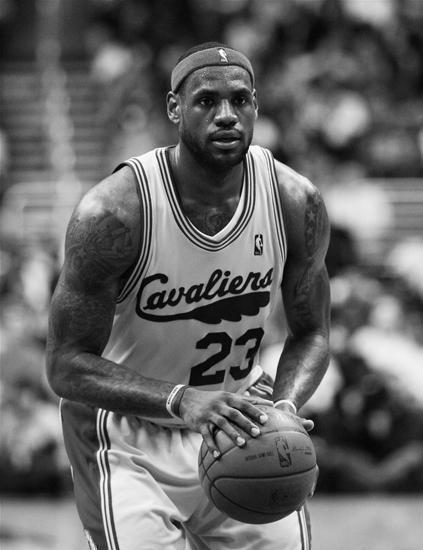As everyone on the planet now knows, basketball superstar LeBron James decided to abandon the city of Cleveland, its team, the Cavaliers, and its loyal fan base as soon as his contract ran out. Cleveland owner Dan Gilbert called his departure a “cowardly betrayal.”. Former fans burned his number 23 jersey and stomped on cardboard cutouts of his image.
What is most surprising of all is that anyone could have expected any other outcome.
At the heart of organized professional sports is a tenuous balance between fans, players and owners. For the better part of the last century, team owners had the upper hand and could exercise monopoly control over its players. If a player was not satisfied with the team’s salary offer, he had no alternative except to sit out the season or play overseas. Team owners were also free to sell or trade player’s contracts with other teams, often without the player’s consent. This was commonly referred to as “the reserve clause,” which kept a player beholden for life to the team with whom they originally signed. This had the natural effect of keeping players’ salaries (and ticket prices) low. There was a sense of order to the league. Players tended to stay with teams, often for their entire careers, and fans could develop a loyalty and true attachment to them. It was a time when it was not uncommon for star players like Stan Musial, Ted Williams, Willie Mays and Hank Aaron to spend virtually their entire baseball careers with one team. When a player did depart for another team, he was “traded“ for like value.
This comfortable system started to unravel when baseball player Curt Flood, a star center fielder for the St. Louis Cardinals, refused to accept a trade to Philadelphia following the 1969 season, and took his case all the way to the Supreme Court. Though Flood’s legal case was ultimately unsuccessful, it encouraged other players in the league to begin a quest for free agency. Ultimately the reserve clause was struck down in 1975 when an arbitrator ruled that since pitchers Dave McNally and Andy Messersmith played for one season without a contract, they could become free agents. The decision essentially dismantled the reserve clause and opened the door to widespread free agency. Players in other sports demanded and ultimately received the right to negotiate with other teams at the expiration of their contracts. The result was predictable. Players salaries escalated to such a high altitude that some have even become team owners. In 1930, Babe Ruth was making $5,000 more than President Herbert Hoover. When asked by a reporter if he thought it was right to be making more than the President, Babe responded “Why not? I had a better year than he did.” LeBron James will roughly match the current President’s salary every two games.
Sadly for the fans, the breaking up of team cohesion has become the norm and their loyalties have been tested. Players today swap jerseys faster than Larry King changes wives. The advent of free agency inevitably tilted the balance of power in favor of those teams with the largest war chests and stretches fundamental principals of fairness. Players want to move to successful franchises, tilting the balance still further. Compared to what it was, the overall product is debased. Alas, most of us are too young to know that for sports fans, things used to be much better.


